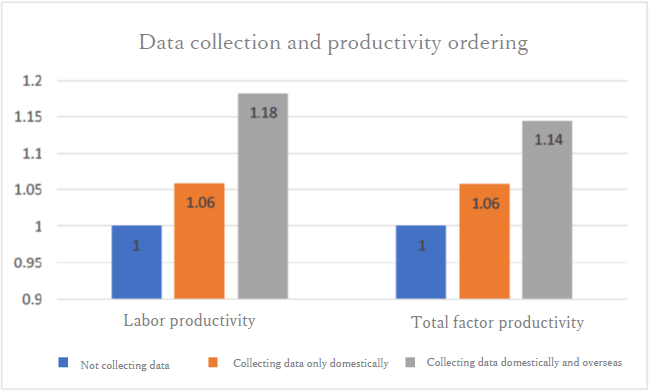| Author Name | TOMIURA Eiichi (Faculty Fellow, RIETI) / ITO Banri (Research Associate, RIETI) / KANG Byeongwoo (Hitotsubashi University) |
|---|---|
| Research Project | Empirical Analysis of Corporate Global Activities in the Digital Economy |
| Download / Links |
This Non Technical Summary does not constitute part of the above-captioned Discussion Paper but has been prepared for the purpose of providing a bold outline of the paper, based on findings from the analysis for the paper and focusing primarily on their implications for policy. For details of the analysis, read the captioned Discussion Paper. Views expressed in this Non Technical Summary are solely those of the individual author(s), and do not necessarily represent the views of the Research Institute of Economy, Trade and Industry (RIETI).
International Trade and Investment (FY2016-FY2019)
Empirical Analysis of Corporate Global Activities in the Digital Economy
It is not just international trade and foreign direct investment (FDI), but also cross-border data flows that are increasingly critical for our economies in the digital age. However, little is known about the characteristics of firms actually transferring data across borders. We investigated differences in firm productivity and other basic characteristics by linking the results of our unique corporate survey on cross-border data flows that we conducted at RIETI with government statistical firm-level data.
First, to understand the value and content of firms’ cross-border data flows, we conducted a survey in 2019 of large- and mid-sized firms in the manufacturing, wholesale, and information-related service industries in Japan and collected responses from 4,227 firms, a response rate of over 20%. We found that the proportion of firms collecting data overseas and transferring data across borders was small despite the fact that this survey did not include small firms. For more specific details on how the survey was conducted and other information, please see Tomiura et al. (2019). Next, in order to learn how these firms that do transfer data across borders differ from other firms, we linked the results of this unique survey with firm-level micro-data data derived from METI’s Basic Survey of Japanese Business Structure and Activity.
The results show that the productivity of firms actively collecting data not only domestically but also overseas is the highest, followed by firms that only collect data domestically. The productivity of firms not collecting data was the lowest (see figure below). This ranking is seen regardless of the measurement of productivity, whether it be labor productivity or total factor productivity. Compared to firms that do not collect data, firms engaged in data collection domestically are on average 6% more productive and firms collecting data both domestically and overseas are 14~18% more productive. Moreover, when quantile regression is conducted for the productivity distribution, this ranking is verified in comparisons of sales and number of employees. The fact that the more globalized a firm is the higher its productivity is consistent with the productivity ordering for firms engaged in exporting and FDI, confirmed in accumulated studies of international economics. Firms engaged in cross-border data transfers are also actively expanding internationally through such exports and FDI. Also, of the new technologies that have attracted attention in recent years, 3D printing has the potential to tremendously affect global trade in dyes, components, materials and other goods as digital data for design and other processes is transferred. Our analysis also revealed that globalized and highly productive firms are very active in adopting 3D printing.

Even among firms collecting data overseas, noteworthy differences were observed in terms of firms’ characteristics. The productivity premium is especially evident for firms that responded they have been affected by recent regulations on cross-border data transfers (EU’s General Data Protection Regulation (GDPR) and cyber security regulations imposed by China and other emerging countries). While it is difficult for an academic survey to directly capture the economic value and content of data being transferred by individual firms, it is possible to conjecture differences in the quality and quantity of data transfers based upon whether firms are affected by data transfer regulations. From the results of our analysis, we conjecture that firms which are actively collecting data and have introduced the Internet of Things (IoT) overseas are more likely to be impacted by cross-border data transmission regulations as it is conceivable that a large quantity of sensitive data is exchanged with overseas subsidiaries and other affiliates. Although such firms are limited in number, they are large and highly productive, and also globalized, so they have extensive influence on many other firms both domestically and internationally. For this reason, the impact that digital protectionism may have on corporate activity cannot be underestimated.

